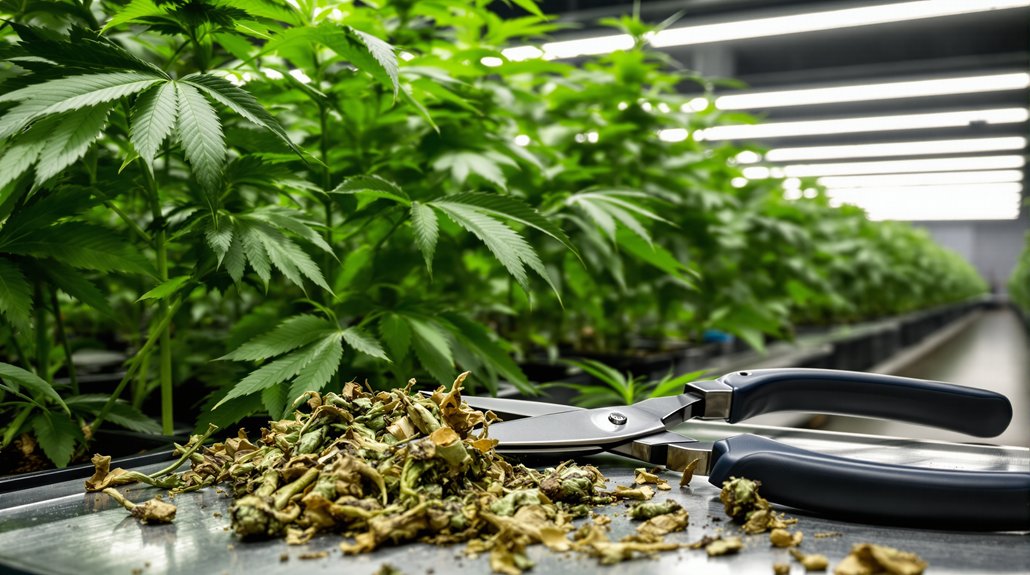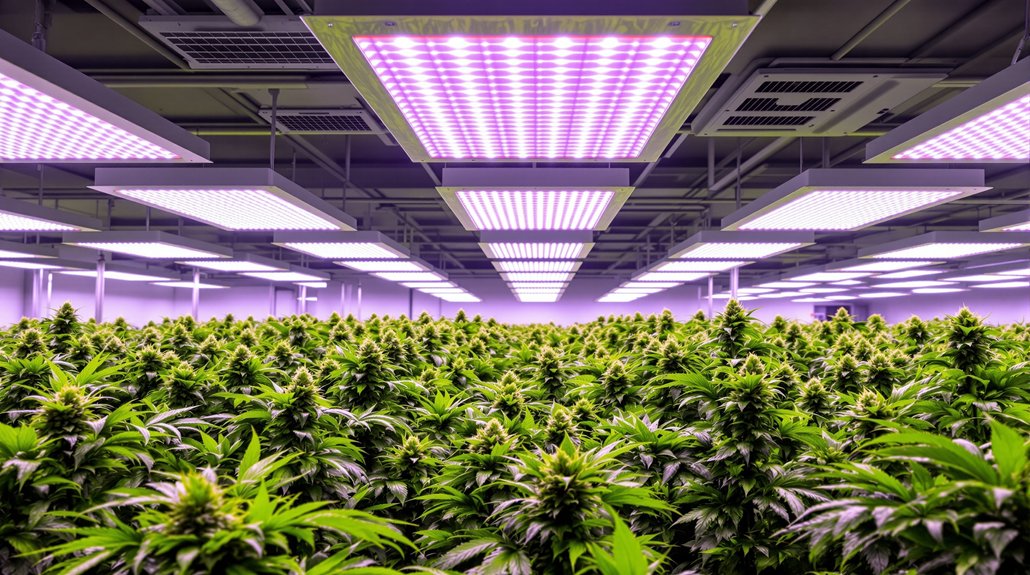Alabama cannabis growers face an unprecedented dilemma as regulatory delays threaten their entire operations. The Alabama Medical Cannabis Commission has yet to issue final licenses, leaving cultivators in legal limbo with mature crops and no authorized dispensaries to receive their products. Without proper licensing, possession of these plants constitutes a felony under state law. Growers now confront a stark choice between destroying months of investment or risking criminal prosecution, while the state’s medical cannabis program remains stalled indefinitely.
Although Alabama legalized medical cannabis in 2021, growers across the state face mounting risks as regulatory delays and legal uncertainties threaten their investments and freedom. The Alabama Medical Cannabis Commission (AMCC) licensing process has become mired in delays and litigation, leaving cultivators in a precarious legal position where they risk criminal penalties despite operating in what should be a legal framework.
Alabama’s medical cannabis growers risk felony charges while trapped in regulatory limbo despite 2021 legalization.
The regulatory gridlock has prevented any medical cannabis dispensaries from opening their doors as of early 2025. Growers who have invested considerable resources into cultivation operations now find themselves waiting indefinitely for license approvals, with crops growing while their legal status remains uncertain. This delay creates a dangerous situation where cultivators face potential felony charges for growing plants that could become legal with proper licensing.
Alabama law treats recreational marijuana cultivation as a Class B felony, carrying severe penalties of 2 to 20 years imprisonment and fines up to $30,000. Even medical marijuana cultivation without an approved AMCC license risks these same criminal penalties. The regulatory uncertainty has created a legal minefield where compliant growers operating in good faith may still face prosecution if their licenses are not approved or if law enforcement does not recognize their pending status.
The stakes are particularly high given Alabama’s aggressive enforcement of cannabis laws. Over 7,600 cannabis possession arrests occurred in the state in 2022, demonstrating active law enforcement efforts. Distribution or cultivation of between 2.2 and 100 pounds constitutes drug trafficking, with potential sentences of 10 to 99 years imprisonment. Asset forfeiture laws further complicate matters by allowing the state to seize property involved in trafficking offenses. For simple possession offenses, violators can face up to $6,000 in fines along with jail time.
Many growers caught in this regulatory limbo may be forced to destroy their entire crops to avoid felony charges. This devastating decision means losing months of investment, time, and resources while facing financial ruin. The AMCC’s limitation on the number of licenses it can approve has intensified competitive pressure, making license approval even more uncertain for applicants. The commission can issue a maximum of 37 dispensary licenses, further constraining the market opportunities for potential operators.
The commission’s lengthy process involving public hearings and voting on applications has contributed greatly to the timeline extensions. Meanwhile, growers face mounting costs and risks while awaiting decisions that could determine whether their operations become legitimate businesses or criminal enterprises.
Federal law compounds these challenges by complicating banking and insurance access for cannabis growers, increasing their financial vulnerability. The legal ambiguity has also discouraged new investment and operational planning for potential industry entrants who recognize the substantial risks involved.
Even once licensing is complete, restrictions will limit market opportunities. Only specific medical cannabis products will be permitted, with smokable flower, paraphernalia, hash, and concentrates remaining prohibited. Medical cannabis will only be accessible to patients with qualifying conditions and physician-registered cards, further limiting the potential market size.
Multiple reform bills filed in 2025 aim to address these regulatory challenges, but immediate relief remains uncertain for growers currently at risk.









